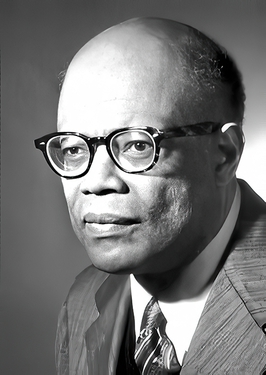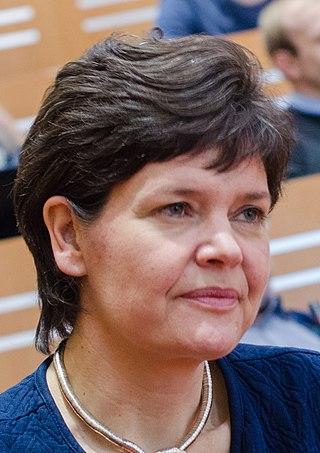Related Research Articles
Autarky is the characteristic of self-sufficiency, usually applied to societies, communities, states, and their economic systems.

Economic history is the study of history using methodological tools from economics or with a special attention to economic phenomena. Research is conducted using a combination of historical methods, statistical methods and the application of economic theory to historical situations and institutions. The field can encompass a wide variety of topics, including equality, finance, technology, labour, and business. It emphasizes historicizing the economy itself, analyzing it as a dynamic entity and attempting to provide insights into the way it is structured and conceived.

Political economy is a branch of political science and economics studying economic systems and their governance by political systems. Widely studied phenomena within the discipline are systems such as labour markets and financial markets, as well as phenomena such as growth, distribution, inequality, and trade, and how these are shaped by institutions, laws, and government policy. Originating in the 18th century, it is the precursor to the modern discipline of economics. Political economy in its modern form is considered an interdisciplinary field, drawing on theory from both political science and modern economics.

A market economy is an economic system in which the decisions regarding investment, production, and distribution to the consumers are guided by the price signals created by the forces of supply and demand. The major characteristic of a market economy is the existence of factor markets that play a dominant role in the allocation of capital and the factors of production.

Joseph Eugene Stiglitz is an American New Keynesian economist, a public policy analyst, political activist, and a professor at Columbia University. He is a recipient of the Nobel Memorial Prize in Economic Sciences (2001) and the John Bates Clark Medal (1979). He is a former senior vice president and chief economist of the World Bank. He is also a former member and chairman of the US Council of Economic Advisers. He is known for his support for the Georgist public finance theory and for his critical view of the management of globalization, of laissez-faire economists, and of international institutions such as the International Monetary Fund and the World Bank.

Development economics is a branch of economics that deals with economic aspects of the development process in low- and middle- income countries. Its focus is not only on methods of promoting economic development, economic growth and structural change but also on improving the potential for the mass of the population, for example, through health, education and workplace conditions, whether through public or private channels.

Industrialisation (UK) or industrialization (US) is the period of social and economic change that transforms a human group from an agrarian society into an industrial society. This involves an extensive reorganisation of an economy for the purpose of manufacturing. Industrialisation is associated with increase of polluting industries heavily dependent on fossil fuels. With the increasing focus on sustainable development and green industrial policy practices, industrialisation increasingly includes technological leapfrogging, with direct investment in more advanced, cleaner technologies.

Sir William Arthur Lewis was a Saint Lucian economist and the James Madison Professor of Political Economy at Princeton University. Lewis was known for his contributions in the field of economic development. In 1979, he was awarded the Nobel Memorial Prize in Economic Sciences.
A green economy is an economy that aims at reducing environmental risks and ecological scarcities, and that aims for sustainable development without degrading the environment. It is closely related with ecological economics, but has a more politically applied focus. The 2011 UNEP Green Economy Report argues "that to be green, an economy must not only be efficient, but also fair. Fairness implies recognizing global and country level equity dimensions, particularly in assuring a Just Transition to an economy that is low-carbon, resource efficient, and socially inclusive."
Robert JamesGordon is an American economist. He is the Stanley G. Harris Professor of the Social Sciences at Northwestern University and one of the world’s leading experts on inflation, unemployment, and long-term economic growth.

In the history of economic thought, ancient economic thought refers to the ideas from people before the Middle Ages.

Arvind Panagariya is an Indian economist who is holding the position of Jagdish Bhagwati Professor of Indian Political Economy at Columbia University and the Director of Deepak and Neera Raj Center on Indian Economic Policies at School of International and Public Affairs at Columbia University in New York City. He served as first vice-chairman of the government of India think-tank NITI Aayog between January 2015 and August 2017. He has been appointed as the chairman of 16th Finance Commission by the government of India. He is a former Chief Economist of the Asian Development Bank. He was awarded the Padma Bhushan by the President of India in 2012 for his contributions in the field of economics and Public Policy.
The Chinese economic reform or Chinese economic miracle, also known domestically as reform and opening-up, refers to a variety of economic reforms termed "socialism with Chinese characteristics" and "socialist market economy" in the People's Republic of China (PRC) that began in the late 20th century, after Mao Zedong's death in 1976. Guided by Deng Xiaoping, who is often credited as the "General Architect", the reforms were launched by reformists within the ruling Chinese Communist Party (CCP) on December 18, 1978, during the Boluan Fanzheng period.

Why Nations Fail: The Origins of Power, Prosperity, and Poverty, first published in 2012, is a book by economists Daron Acemoglu and James A. Robinson, who jointly received the 2024 Nobel Economics Prize for their contribution in comparative studies of prosperity between nations. The book applies insights from institutional economics, development economics, and economic history to understand why nations develop differently, with some succeeding in the accumulation of power and prosperity and others failing, according to a wide range of historical case studies.

Post-growth is a stance on economic growth concerning the limits-to-growth dilemma — recognition that, on a planet of finite material resources, extractive economies and populations cannot grow infinitely. The term "post-growth" acknowledges that economic growth can generate beneficial effects up to a point, but beyond that point it is necessary to look for other indicators and techniques to increase human wellbeing.
Neva Goodwin Rockefeller is an American businesswoman. She's served as co-director of the Global Development And Environment Institute (GDAE) at Tufts University since 1993, where she is a research associate at the Fletcher School of Law and Diplomacy and director of the Social Science Library: Frontier Thinking in Sustainable Development and Human Well-Being.

Kate Raworth is an English economist known for "doughnut economics", an economic model that balances between essential human needs and planetary boundaries. Raworth is senior associate at Oxford University’s Environmental Change Institute and a Professor of Practice at Amsterdam University of Applied Sciences.
Miriam A. Golden is a political scientist and the Peter Mair Chair in Comparative Politics at the European University Institute. Her research focuses on the selection, responsiveness, and accountability of politicians in Asia, Europe, Africa and North America.
Yukon Huang is a Chinese-American economist. He is a senior fellow and research associate in the Asia Program at the Carnegie Endowment in Washington, D.C. His areas of research include China's economic and political development and its impact in Asia and globally.
References
- ↑ "What Everyone Needs To Know® - Oxford University Press". global.oup.com. Retrieved 2020-06-10.
- ↑ "BOOK REVIEWS - China's Economy: What Everyone Needs to Know, Author: Arthur R. Kroeber, Publishers: Oxford University Press, 2016, pp. 337 » Applied Economics Research Centre". Applied Economics Research Centre. 2019-06-21. Retrieved 2020-06-10.
- 1 2 Phillips, Matt (4 May 2016). "What everyone needs to know about China's huge debt load". Quartz. Retrieved 2020-06-10.
- ↑ Bulloch, Douglas (30 April 2016). "Getting China's Economy In Perspective: The View From Inside". Forbes. Retrieved 2020-06-10.
- ↑ "China's Economy: What Everyone Needs to Know® | Oxford University Press". www.oupjapan.co.jp. Retrieved 2020-06-10.
- ↑ Thoburn, John (2017-04-03). "China's economy: what everyone needs to know, by Arthur R. Kroeber/Developing China: the remarkable impact of foreign direct investment, by Michael J. Enright". Journal of the Asia Pacific Economy. 22 (2): 353–356. doi:10.1080/13547860.2017.1296242. ISSN 1354-7860. S2CID 158983028.
- ↑ "China's Economy: Does Growth Have a Future? | National Committee on United States - China Relations". www.ncuscr.org. Retrieved 2020-06-10.
- 1 2 "China's economy: Neither a bull nor a bear be - Growth is slowing but fears of collapse are overdone" . The Economist. ISSN 0013-0613 . Retrieved 2020-06-10.
- ↑ "Arthur Kroeber vs. The Conventional Wisdom". SupChina. Retrieved 2020-06-10.